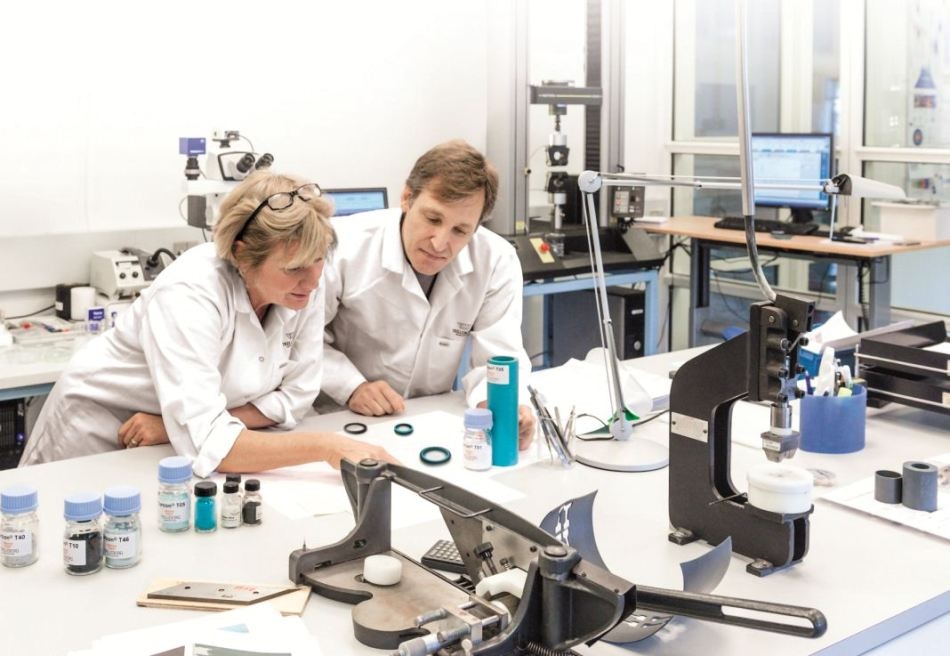Aug 2 2016
Trelleborg Sealing Solutions has carried out a series of tests to show the importance of fluid type and seal material choice in “ensuring optimum seal performance and service life”.
 Testing revealed the importance of fluid type and material choice in ensuring optimum seal performance and service life
Testing revealed the importance of fluid type and material choice in ensuring optimum seal performance and service life
The world leader in engineered polymer solutions, which has been making highly developed seals for over 30 years, worked with fluid producer MacDermid to test the effect of water glycol fluids (HFC) on common seal materials.
Together the engineers for both companies tested seven seal materials which were immersed in water glycol fluids at a range of elevated temperatures up to +200°C / +392°F.
The results have been published in a white paper on the subject which will be available to collect from Trelleborg’s stand in Hall 9 at the ONS Conference in Norway from August 29 to September 01.
Each seal and fluid combination was tested for hardness change, tensile strength change, strain change and volume change. All physical changes were documented using before and after photos.
David Brown, Global Lead Group Director, Oil & Gas, Trelleborg Sealing Solutions, says: “The testing reveals the importance of fluid type and seal material choice in ensuring optimum seal performance and service life. Traditional sealing materials, such as FKM, often inert in most fluids, are exhibiting disadvantageous behaviour in HFC fluids.
“Offshore operators are free to add extra additives to suit their particular application, but these could lead to seal material incompatibilities and cause dramatic adverse effects on sealing materials.
“We recommend each application must be reviewed uniquely to optimize the seal materials with the HFC fluid to ensure seal performance and life.”
The series of tests were developed by Trelleborg Sealing Solutions in 2015.
The company decided to investigate the effects of high-temperature exposure of sealing materials within water-based hydraulic fluids because until now, the two materials have never been thoroughly tested together at high temperatures before.
Water-based hydraulic fluids are widely used in oil and gas, mining, hot-rolling mills, and similar applications where the potential for fire could cause catastrophic consequences.
They are also replacing traditional oil-based HLP fluids in applications where environmental regulations must be observed.
As a result, they have become more prevalent in many applications within offshore energy production as a means of protecting people, the environment and resources.
The International Standards Organization (ISO) classifies fire-resistant, water-based hydraulic fluids into four categories which include HFAE, HFAS, HFB and HFC.
HFC fluids are the most common hydrous, fire-resistant hydraulic fluids because they have the best fire resistance and hydraulic properties. They are also used wherever hydraulic fluid escaping under high pressure can ignite on contact with hot materials.
The fire resistant and environmentally friendly qualities of HFC fluids make them ideal for use in offshore installations.
The fire-resistant properties mean greater fire safety, offering more time to initiate fire-fighting measures and bring people to safety in the event of an accident.